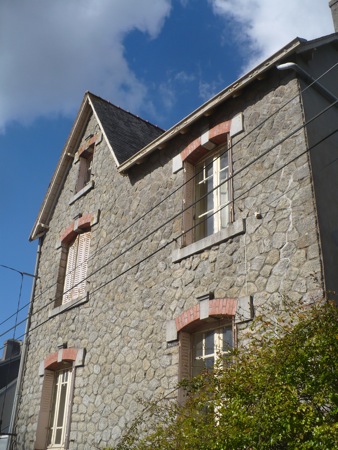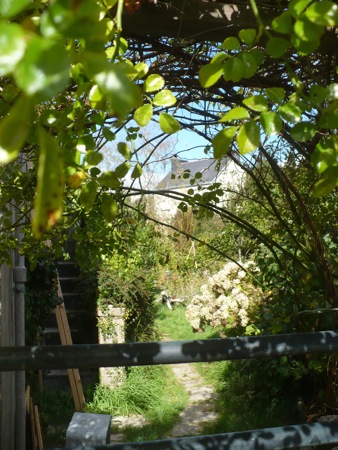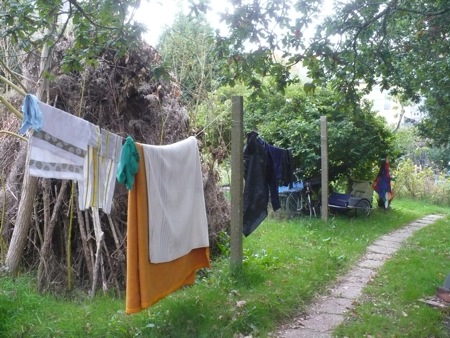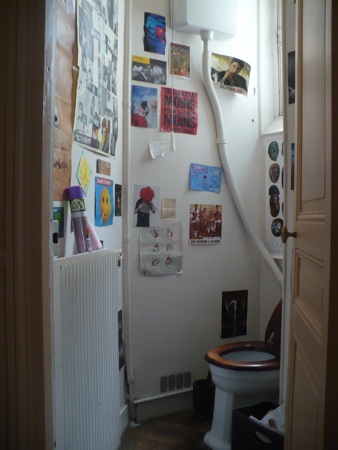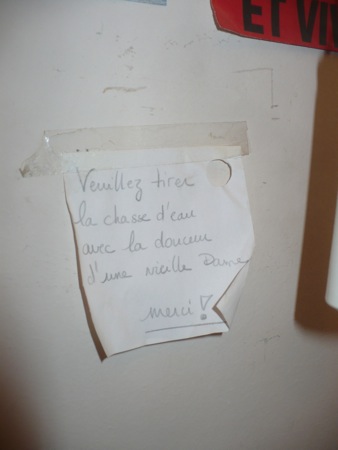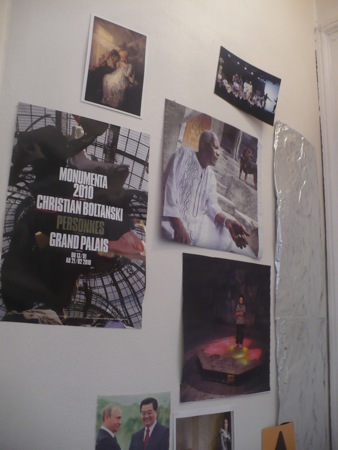So as everyone who reads the news has probably heard, there has been a major “social movement” here the last few weeks, basically opposing the government’s reform of the pension system. There have been a number of street protests, major strikes of public transit and railroad workers, and fuel shortages because of industrial strikes. I’m not going to take the time to give links to these ongoing stories, because you can look it all up on google. (I recommend French-language coverage, if possible, and otherwise maybe the BBC. Americans seem to be prone to idiotic analyses like this one.)
To be honest, as an ethnographer, I haven’t been extremely curious about this whole political affair; it’s only peripherally about the universities, and I’m mainly interested in the politics of the university system. And I’m not the only one who feels separate from this movement: at a faculty activist meeting a week ago, teachers commented that their concerns about the institutional situation were radically different from their students’ involvements in the pension question, and they weren’t sure (at that point) what points of commonality with the students they were going to find.
University discussion of the movement has, nonetheless, been ongoing, and I was particularly interested in one sociology student’s testimonial from the barricades in Lyon. I’ve taken the time to translate it; there’s something important to learn, I think, from stories of what happens when privileged, educated people suddenly find themselves subject to irrational and overwhelming state violence.
Thursday, October 21, 2010. Testimony of events on Place Bellecour, Lyon.
I arrived around noon at Place Bellecour, accompanied by some student friends. A protest was supposed to start at 2pm, on Place A. Poncet just beside Place Bellecour, with college and high school students, partnered with the CGT [a major union] and SUD [a left autonomist union]. A number of young people were there, mostly high schoolers and middle schoolers. You crossed a police cordon to enter the square. There were several dozen of them at every exit from the public square, which is one of the largest in France. They were armored from head to foot, with helmets, shields, nightsticks, pistols… There was also a truck from the GIPN (National Police Intervention Group, who had an armored truck and wore masks) and two anti-riot water cannon trucks. A helicopter surveyed the site from a low altitude. Half an hour later, after a few stones were thrown towards the police and their vehicles, the cops went into action and fired tear gas grenades. The crowd dispersed.
